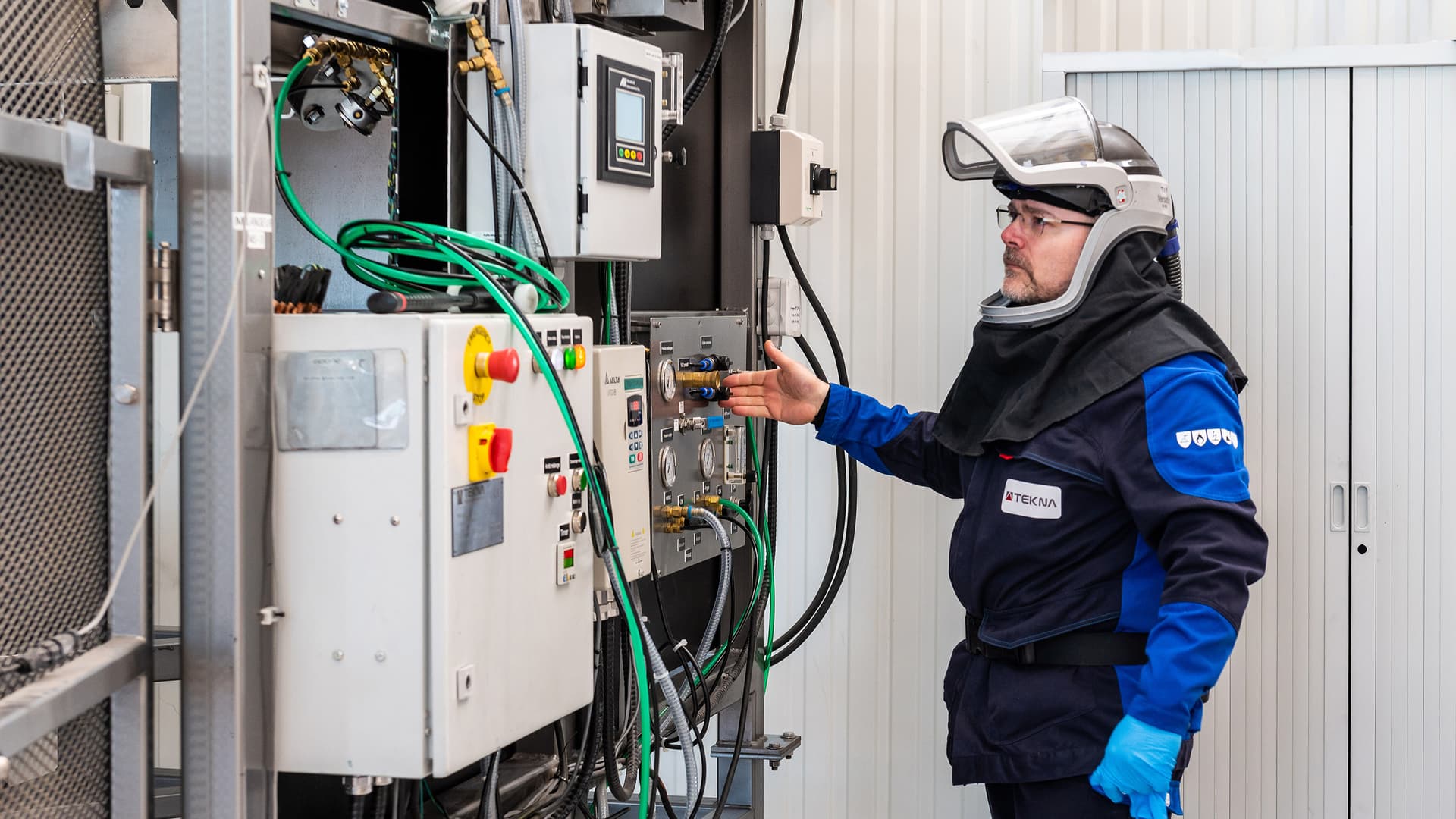
The pores in your skin are wider than the nano-sized particles made by Tekna, which is why you would need special gloves if you were to hold these tiniest pieces of metals in your hand.
The amazingly small metal spheres are produced in a Tekna plasma technology machine. Solid metal is inserted in one end, and tiny particles come out on the other end.
Somewhere in the middle of the living room-sized machine is a small area, where the metal is exposed to temperatures higher than on the sun’s surface. Heat is added till the metal turns into liquid or metal vapor.
IT IS JUST SCIENCE
Controlling the cooling-down phase with patented technology, Tekna produces perfectly spherical particles. The smallest of which have an average diameter of 80 nanometer.
“If you put these Tekna-made particles in a perfectly straight line, you could fit 12,500 of them within 1 millimeter,” explains Luc Dionne, CEO of Tekna.
It may sound like science fiction. It is just science.
Luc Dionne, CEO of Tekna.
BIG BUSINESS
Production of controlled-sized metal powders is big business for Tekna. The plasma technology allows for industrial-scale manufacturing of powders in the form of pure metals, alloys, and ceramics. The most sought-after metals are aluminum and titanium, but nickel, tantalum, and tungsten are also manufactured by Tekna.
Demand is rapidly growing and Tekna’s production capacity is up 70 per cent from a year ago.
“Our facilities enable powder production in industrial quantities that meets the most demanding criteria,” says Dionne.
3D PRINTING
Tekna’s metal powder is primarily used for additive manufacturing, also known as 3D printing, in industries such as aerospace, medical, and the automotive sector. Customers are typically global, industrial and… secret.
“We are usually not allowed to disclose the identity of our clients. I will, however, say that we serve many global OEMs,” says Dionne.
Among end-products produced with Tekna powders are parts for modern airplanes, medical implants, night vision glasses, smart watches, and electrical motorcycles.
UNIVERSITY SPIN-OFF
Located in Sherbrooke, Canada, Tekna is originally a spin-off from the local university, known for its world-leading competence within plasma technology. The French-speaking Université de Sherbrooke is host to more than 31,700 students, including 2,600 foreign students from 104 countries worldwide.
In 2014, Tekna came into the portfolio of Arendals Fossekompani. Today, Tekna employs more than 200 people in five countries: Canada, USA, France, Korea, China.
Tekna was listed at Euronext Growth in Oslo in 2021, and up-listed to the main list of the Oslo Stock Exchange a year later.



